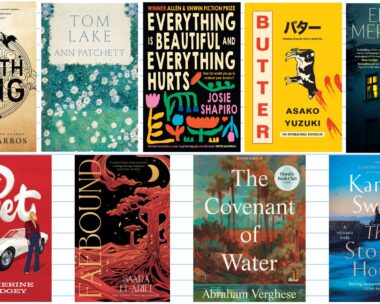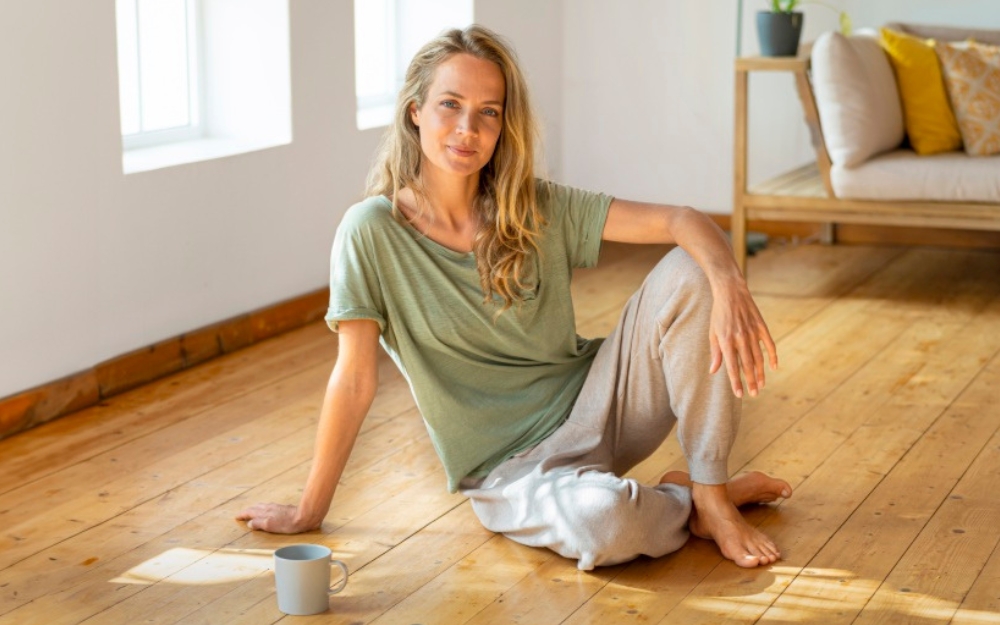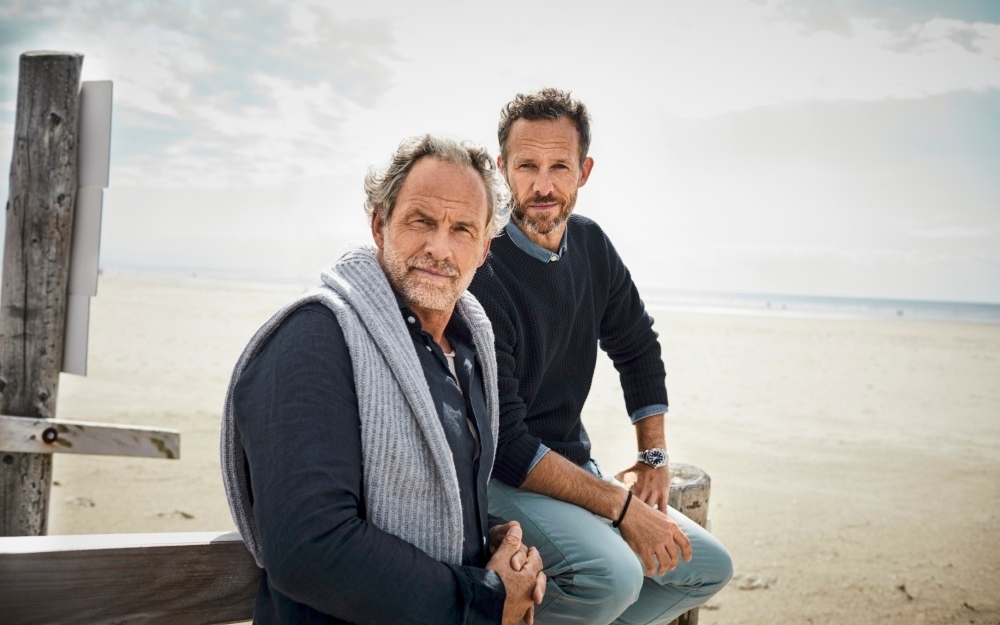Sarah Wilson, the I Quit Sugar queen who helped to establish a worldwide shift away from sugar consumption, cannot remember a day in her life when she did not suffer from some kind of anxiety. Even as a little girl, growing up on a rural property outside Canberra, Australia, Sarah worried obsessively about almost every aspect of her young life.
“When I was a teen, my anxieties came out in obsessive behaviours and for me it was mostly about showering and going to the toilet,” says Sarah, sitting in her favourite inner-city café and calmly recounting one of the most difficult periods of her life.
“I would shower and shower and shower, and then I would wash my hands and then wash them again and then again. Then I’d check that the doors were locked before I went to bed and then get up and do it all again. It was a constant, repetitive cycle, a repetitive nightmare. Counting was a big part of it. There is a calm certainty in numbers – there is always a right answer – while life is full of ambiguity.”
From the outside, most people look at Sarah, now 43, and see the smiling visage of a happy, successful woman apparently in control of her life and its direction. Beneath that veneer is another woman, the one who struggles with her identity, direction and purpose, a woman who, even now, can spend sleepless nights lost in a downward spiral of fear, doubt and worry about the vagaries of life.
In an intimate and exclusive interview, Sarah breaks her silence about her lifelong battle with anxiety, the irresistible urges of obsessive compulsive disorder (OCD), her contemplation of suicide and the tragic details of a recent miscarriage that ultimately tore apart a relationship and left her alone to face the world.
“This is something I have never spoken about publicly before,” says Sarah, who also suffers from bipolar disorder. Her I Quit Sugar books and online programme have made her one of the country’s most successful small-business impresarios, generating estimated revenue of more than $4 million a year and employing 23 staff.
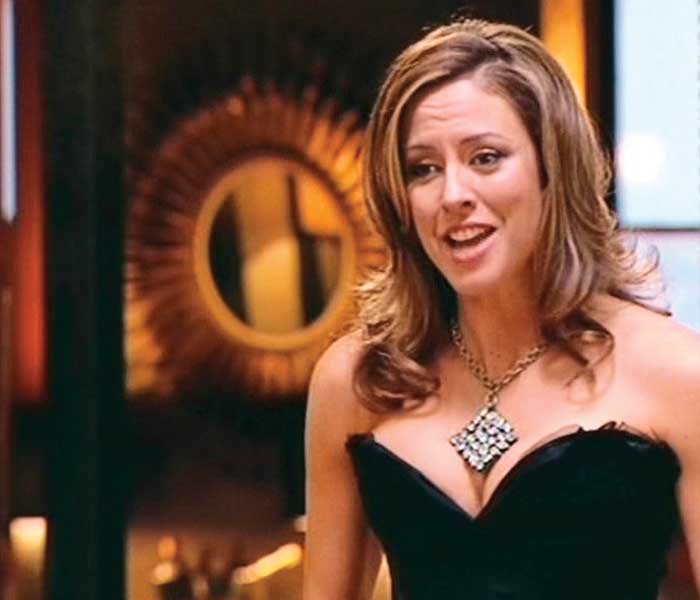
Sarah – ill with Hashimoto’s – as co-host of MasterChef.
“I’ve kept this private all my life, a secret from almost everyone, even members of my family and those closest to me,” she says. “There are only four or five people who have ever seen me inhabit the spaces that I am describing and there are perhaps fewer than 10 people who I’ve told about it.
“However, I feel now is the time to speak out about it because anxiety is an affliction that distresses so many. Millions of people out there are just like me. They live with this every day and know what it is to struggle every day.
“The difference is that, over many years and after many missteps, I have learned to live with my anxiety and, rather than fighting against it, I’ve managed to use it to empower myself and to channel my energy and focus into a positive force. I hope that perhaps others may benefit from hearing that story.”
Sarah’s startling revelations come as she releases her new book, First, We Make the Beast Beautiful – part memoir, part guidebook – examining her personal journey with anxiety alongside the accepted theories and therapies for the condition.
Sarah grew up in a family that never had much money.
“My grandad used to sort second-hand clothes for a charity and he’d set aside some for us. That is what we wore. Mum used to buy day-old bread from the baker for $1.
“But that’s just the way it was for us and I certainly don’t blame my parents for that.”
Sarah believes that her anxieties stemmed from some kind of genetic predisposition, but concedes that the reasons are as much a mystery to her as they are to science generally.
“I grew up knowing I was anxious,” Sarah says. “I was aware of it and I was aware of being different from quite a young age. I was aware of my parents struggling to understand me from around eight or nine years of age. Then from 11 or 12, the complexity started, a complex need to figure out what life is really about.”
That anxious need manifested itself in a teenage search for spiritual meaning. Aged 12, she insisted that her parents help her explore religion – everything from traditional Christian theology to Hare Krishna and even, for a time, Scientology.
“When other parents were driving their kids around to weekend sport, I had my parents taking me to religious meetings all around Canberra,” says Sarah. “The Scientologists welcomed me with open arms, but none of those things gave me what I was looking for and it took age and experience and maturity before I even came to know what it actually was that I was looking for.”
After high school, Sarah studied philosophy, then professional writing, before drifting into journalism. By the age of 25, she had a regular newspaper column. In 2004, she became editor of Cosmopolitan magazine, but her inner complexities were beginning to swamp her.
More and more, she felt like she was swimming against a tide, knowing that she wasn’t heading in the right direction, but also not knowing which direction was the right one for her, all of which fed into her increasingly anxious mental state.
It was during this period that Sarah participated in a series of fertility tests for an article for the magazine, only to be told that she was infertile.
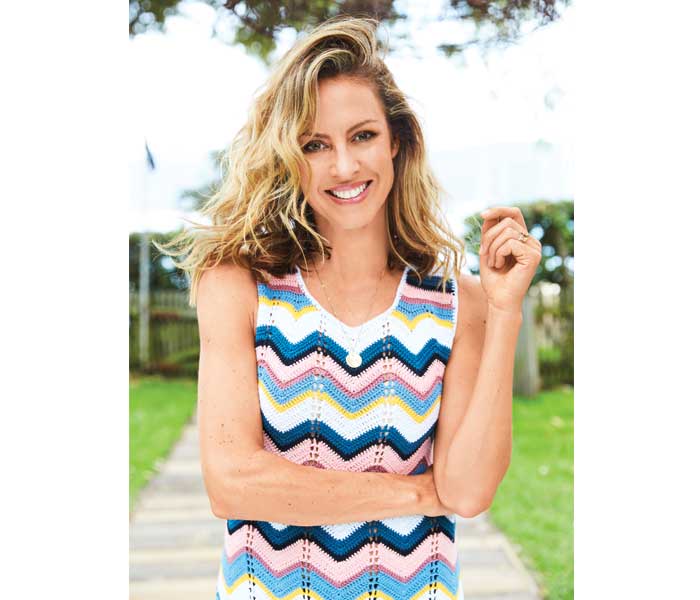
“Hearing that you will never have children when you’re in your early 30s is a big shock,” says Sarah.
“I was grief-stricken, but at the same time, it was something I wasn’t prepared to deal with properly. I had so many other problems worrying me that I kind of put it on a shelf and thought, ‘I’ll deal with it later.’”
What Sarah didn’t know then – and only discovered later – was that she was suffering from Hashimoto’s disease (HD), a precursor to hypothyroidism, which leads to weight gain, fatigue and heavy menstrual cycles. The tests that diagnosed her HD confirmed that she would not be able to have children.
All of this took an immense mental toll and fed into Sarah’s escalating anxiety and increasingly parlous mental state.
Sarah gained 14kg and her hormone levels were widely erratic. At the same time, she felt like a square peg being forced into a round hole. Everyone around her expected that she would fit right in at Cosmopolitan, but she knew in her heart that something was desperately wrong.
“I had never worn make-up when I took on that job,” she says. “It was like walking into a glittery pink bonanza and it simply wasn’t my world. I was drinking a bottle of red wine each night to come down and then coffee and sugar in the morning to come back up. I struggled and struggled, and eventually it became intolerable.”
Sarah cast about for something else and found MasterChef Australia. She jumped at the chance, but landed in another world of pain. For a woman who was seeking a sense of purpose, acting as a superfluous TV cooking show host in a push-up bra was ultimately a catastrophic choice.
Sarah’s anxiety swoops in mostly at night when she has time on her hands and the opportunity to think and overthink everything in her life. The anxiety heightens, but her moods spiral down to what Sarah calls the “clusterf–k” moment when everything seems to implode.
These are excruciating flashes of existential angst which leave Sarah screaming silently in her head, times when she has even wondered if life is actually worth living.
It was during one of these moments that Sarah realised she didn’t want to continue any more. “More than ever, I was ready to die,” she says.
“Luckily, I didn’t have the means to make that happen. But it’s not too dramatic to say that if I’d been walking in the street at that moment I would have been happy to walk under a bus. It was that turning point where I really literally did go, ‘What’s life about?’”
First, We Make the Beast Beautiful by Sarah Wilson, Macmillan is on sale now.
If you or someone you know needs emotional support, phone Lifeline, 0800 543 354.
Words: Michael Sheather

